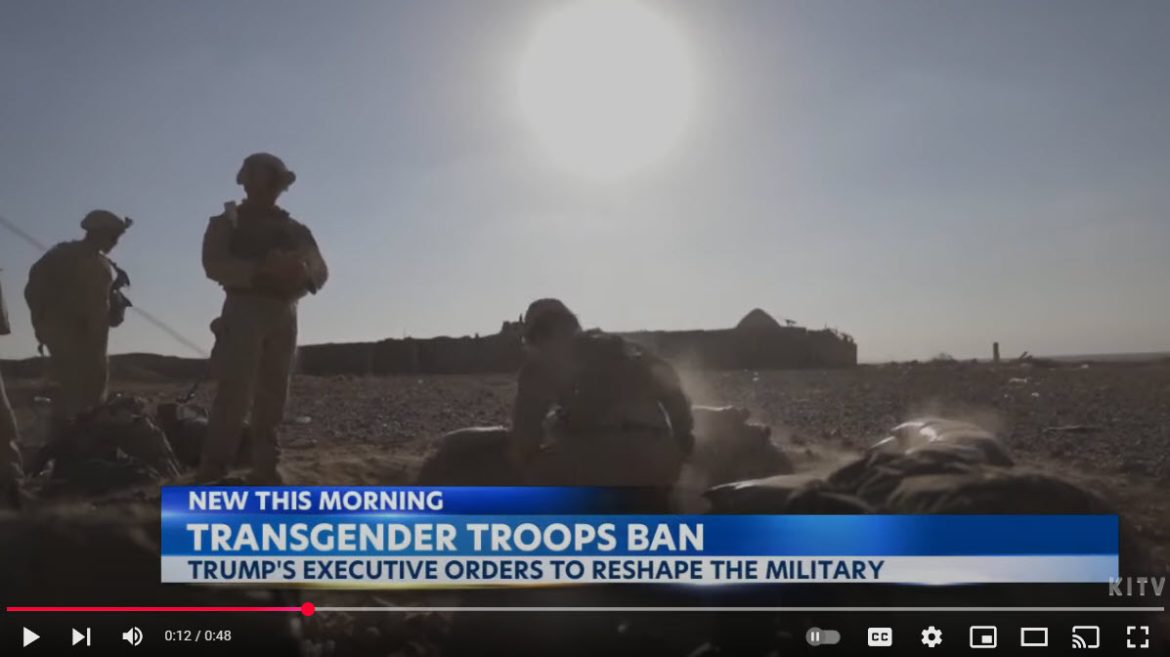President Donald Trump is set to sign three significant executive orders on Monday, marking major shifts in U.S. military policy and taking a hardline stance against international drug cartels. According to reports, the executive orders will include reinstating service members discharged over COVID-19 vaccine refusals, banning transgender individuals from serving in the military, and eliminating diversity-related programs within the armed forces. Trump is also issuing a separate executive order to designate drug cartels as foreign terrorist organizations (FTOs), a move aimed at crippling their operations.
The first executive order reinstates military personnel who were discharged for refusing COVID-19 vaccinations. The measure includes back pay for affected service members and underscores Trump’s criticism of vaccine mandates implemented under President Joe Biden’s administration. Trump has consistently labeled such mandates as overreaches of government power, and this order aims to reverse what he calls “unjust discharges” while rebuilding military ranks.
The second executive order reinstates a ban on transgender Americans serving in the U.S. military. This policy, originally introduced by Trump in 2017, was repealed by President Biden in 2021. Trump’s administration argues that this policy is intended to maintain military focus and readiness, though it has faced widespread criticism from LGBTQ+ advocacy groups, who argue that it discriminates against capable service members willing to serve their country.
The third executive order will prohibit diversity, equity, and inclusion (DEI) programs within the military. Trump has described DEI initiatives as “woke ideology” that distracts from the armed forces’ primary mission of defense and combat readiness. This move is part of his broader agenda to reduce what he considers unnecessary bureaucracy within federal institutions.
In a separate but equally consequential move, Trump is signing an executive order to officially designate drug cartels as foreign terrorist organizations. This designation, long discussed by Trump and some Republican lawmakers, would empower the U.S. State Department to impose economic sanctions and travel restrictions on cartel members and their affiliates. It would also enhance the ability of federal agencies to target cartel financial networks and operations. Congressman Tony Gonzales of Texas emphasized that the move sends a strong global message about the Trump administration’s commitment to addressing cartel-related violence and drug trafficking.
These executive orders come as the Senate advances Trump’s nominee for Defense Secretary, Pete Hegseth. The Senate voted to invoke cloture on Hegseth’s nomination, despite opposition from two Republican senators. Hegseth’s confirmation is expected to finalize in the coming days, positioning him to implement Trump’s military policies.
Trump’s latest policy decisions reflect a clear pivot toward reinforcing his administration’s focus on national security, traditional values, and hardline approaches to crime. Supporters hail these measures as necessary steps to restore strength and discipline in the military and combat international drug cartels. However, critics warn that the policies, particularly the bans on transgender service members and diversity initiatives, risk alienating critical segments of the armed forces and undermining morale.
The signing of these executive orders is expected to generate significant political and social debate, with potential legal challenges looming. As Trump solidifies his defense and security agenda, the nation watches closely to gauge the implications for military personnel, U.S. foreign policy, and domestic stability.



